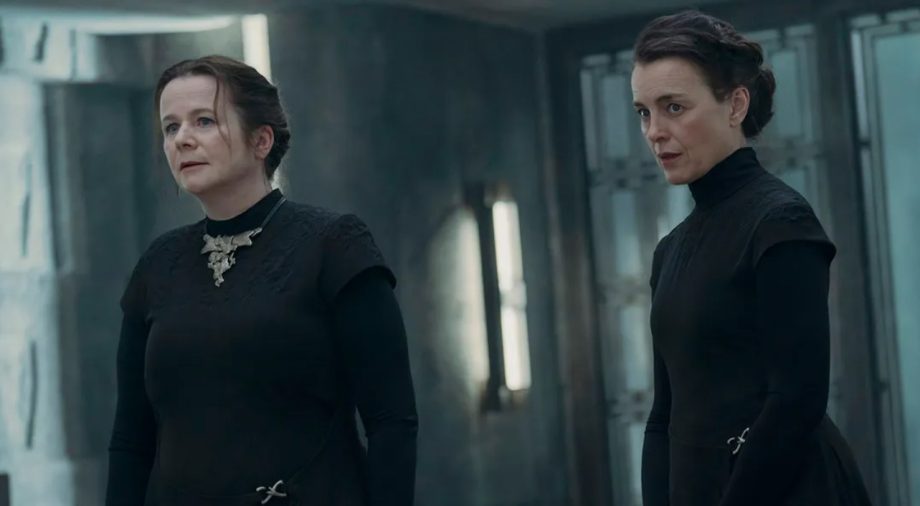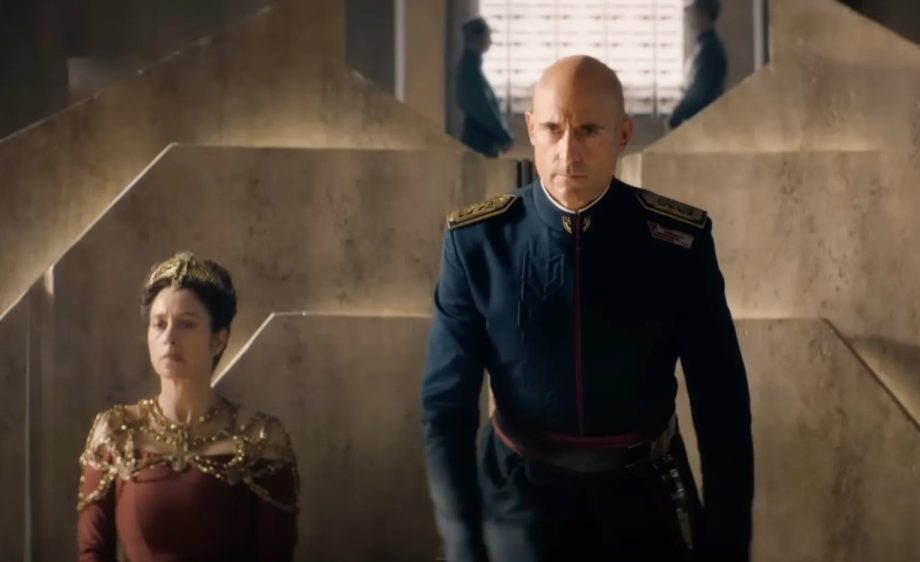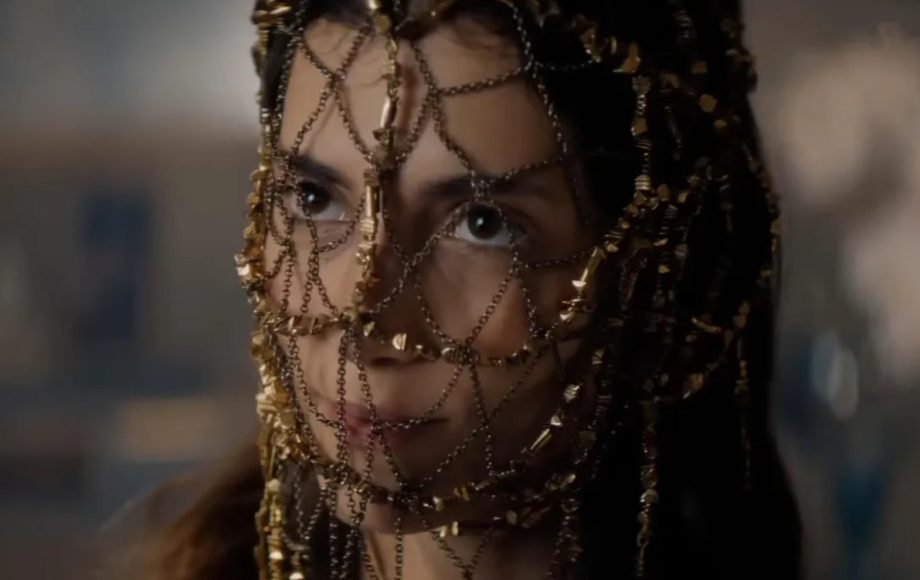Rating – *** (3/5)
Dune: Prophecy
Streaming on JioCinema (new episode every Monday)
Cast: Emily Watson, Olivia Williams, Mark Strong, Chloe Tea, Jade Anouka, Tabu & more
HBO’s Dune: Prophecy marks another ambitious foray into Frank Herbert’s sprawling sci-fi universe, bringing a prequel tale of the Bene Gesserit Sisterhood to life. Set over 10,000 years before Paul Atreides’ rise, the series attempts to carve its niche in the shadow of Denis Villeneuve’s films. While it excels in certain respects, particularly in character-driven drama, it faces challenges in maintaining the grandeur associated with the Dune franchise.
A Focus on the Early Days of the Sisterhood
The story centres on Valya (Emily Watson) and Tula Harkonnen (Olivia Williams), two Reverend Mothers pivotal in establishing the Bene Gesserit order. As the show toggles between the present and flashbacks of their youth, viewers witness the shaping of an organization renowned for its political and spiritual prowess.
This internal drama offers a shift from the epic battles and sweeping desert landscapes of the Dune films. Instead, Prophecy delves into themes of vengeance, loyalty, and power dynamics, particularly through the complex relationship between Valya and Tula.

A Tale Told in Tighter Spaces
Unlike its cinematic counterparts, Dune: Prophecy prioritizes intimate storytelling over spectacle, at least in the beginning. Director Alison Schapker, known for her work on Westworld, opts for emotionally charged moments over large-scale conflicts. While this approach allows the characters to shine, it also limits the series’ scope.
The ornate interiors of the Sisterhood’s world are visually stunning, yet the show occasionally feels confined by its setting. Stray mentions of spice, Arrakis, and the Fremen establish continuity with the broader Dune lore but fail to evoke the same expansive universe depicted in Villeneuve’s films.
Character-Driven Performances Anchor the Show
The series’ greatest strength lies in its performances, particularly from Emily Watson and Olivia Williams. Watson portrays Valya with a nuanced blend of authority and vulnerability, while Williams imbues Tula with a commanding presence. Flashbacks featuring Jessica Barden as a younger Valya provide additional depth to the sisters’ relationship, enriching the narrative.
Mark Strong, as the Emperor, adds gravitas to the political intrigue, and Travis Fimmel’s Desmond Hart introduces an unpredictable element to the story. However, some supporting performances falter under the weight of the dense dialogue, occasionally stripping scenes of their intended intensity.
World-Building and the Game of Thrones Formula
Dune: Prophecy benefits from the extensive world-building already established by the Dune films. The series leans on this foundation, sparing itself the burden of extensive exposition. However, this reliance on prior knowledge may alienate newcomers unfamiliar with the intricacies of Herbert’s universe.

The show also borrows heavily from the Game of Thrones playbook, with its focus on political manoeuvring and a sprawling cast of characters. The numerous names and houses can be challenging to follow, making subtitles a valuable addition for viewers keen on grasping the finer details.
Challenges in Pacing and Complexity
While the series format provides ample room to explore its themes, Dune: Prophecy occasionally stumbles in its execution. The first episode is densely packed with character introductions and overlapping plotlines, creating a steep learning curve for viewers. This complexity, coupled with the absence of subtitles in some screenings, detracts from the accessibility of the story.
The pacing, too, feels uneven. The deliberate focus on dialogue-driven scenes slows the momentum, and the absence of action sequences akin to the tense battles and sandworm encounters of the films might leave some fans longing for more dynamic moments.

A Foundation for Future Development
Despite its shortcomings, Dune: Prophecy lays a solid groundwork for potential future seasons. The series’ format allows for gradual narrative expansion, offering the opportunity to delve deeper into its characters and the machinations of the Bene Gesserit. As the show progresses, it has the potential to strike a balance between its intimate focus and the grandeur expected from a Dune story.
The Verdict
Dune: Prophecy boldly attempts to explore the origins of one of Dune’s most enigmatic factions. While it excels in character-driven drama and offers a distinct perspective on the universe, it struggles to match the epic scale of its cinematic predecessors. Its reliance on intricate plotting and dialogue-heavy storytelling may not appeal to all audiences. Still, for fans of political intrigue and slow-burning drama, the series presents a compelling addition to HBO’s roster.
Whether Dune: Prophecy will rise to the stature of Game of Thrones or serve as a placeholder for Dune enthusiasts remains to be seen. For now, it offers a thoughtful, if imperfect, exploration of vengeance, power, and the seeds of revolution that shaped the Bene Gesserit Sisterhood.












